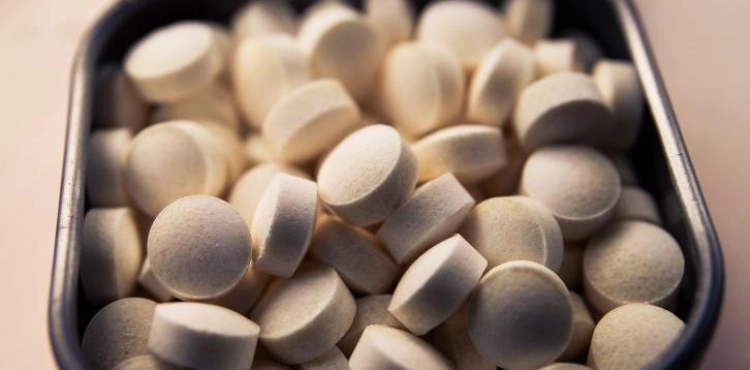Gaza´s only pharmaceutical factory is struggling to survive amid severe hardships its administration faces as a result of the economic downturn in the 12-year-old Israeli blockade.
The Middle East Pharmaceutical Company was established in the Gaza Strip in 1994 by the Middle East Pharmaceutical and Cosmetics Company, in conjunction with the establishment of the Palestinian Authority following the signing of the Oslo Interim Peace Agreement with Israel.
The plant began its actual production in 1999, complying with international standards for the pharmaceutical industry. But over the years of the blockade on Gaza, which began in 2007, the factory suffered heavy losses.
According to Marwan al-Astal, general manager of the Middle East Pharmaceutical and Cosmetics Manufacturing Company, the blockade and its economic crisis posed an existential threat to the factory.
"We are still struggling to survive, especially since we are providing 13 per cent of medicines to the local market of all kinds," he said.
The factory employs about 60 workers, most of whom are pharmacists to produce various types of medicines, ointments and some cosmetics to pump to the local market at a limited profit in light of the economic crisis suffered by the population of the Gaza Strip.
"Despite the decline in the production of dozens of varieties of medicines that we were making and exporting to the West Bank as well as Algeria, we were able to produce other varieties of drugs, which managed to rebalance the profit rate somewhat while maintaining the presence of the factory until today".
He explains that one of the most important reasons that contributed significantly to the decline in the productive capacity of the plant, is the repeated Israeli incursions into the factory and its occupation for more than three continuous months.
He noted that the incursions began since 2003 when Israeli forces occupied him during a military escalation in the Gaza Strip. He adds that "it is not over at this point, but followed by several operations directly or indirectly by Israeli warplanes, were forcing the factory to pause temporarily until the repair of partial damage to it."
The blockade on Gaza had a major role in impeding the production process and its development at the factory, especially in preventing the introduction of many raw materials for the pharmaceutical industry into the Gaza Strip, which reduced the proportion of production at that time to 80 percent, according to Al-Astal.
Israel imposed a tight blockade on the population of the Gaza Strip since mid-2007 after the Hamas takeover by force, after rounds of internal fighting with the security services. In addition to the blockade, Israel launched three large-scale military operations against the Gaza Strip, the first at the end of 2008 and the beginning of 2009, and the second in November 2012 to the last attack in the summer of 2014.
This has resulted in the destruction of a large proportion of the infrastructure and productive factories in the Gaza Strip, as well as the destruction of thousands of houses in part or in whole.
According to Secretary General of the Federation of Construction Industries Mohammed Al-Assar, the Israeli blockade has inflicted significant financial losses on the private industrial sector, which led to layoffs and hindered production and development.
Al-Assar points out that Israel continues to prevent the entry of about 400 items of raw materials and goods into the Gaza Strip, as well as sufficient building materials, impeding the reconstruction of what was destroyed in the last Israeli attack in 2014.
The pharmaceutical factory is working to produce only 20% of its total production capacity, while the management resorted to the production of other varieties of medicines and cosmetics to ensure the continuity of work, according to the warehouse manager at the factory engineer Sami Al-Taban.
Al-Tabban says that the process of producing medicines takes many months as a result of waiting for a long time before allowing the allowed raw materials from Israel to the Gaza Strip, in a complex process that prevents the production of larger quantities.
He points out that they import raw materials from China, Germany, Russia and other European countries that contribute significantly to the development of their performance.
Al-Tabban asserts their ability to meet the needs of the local market if Israel allows the entry of raw materials without any obstacles or ban some of them, which is a necessity to promote this industry necessary for Palestinians in the Strip.












